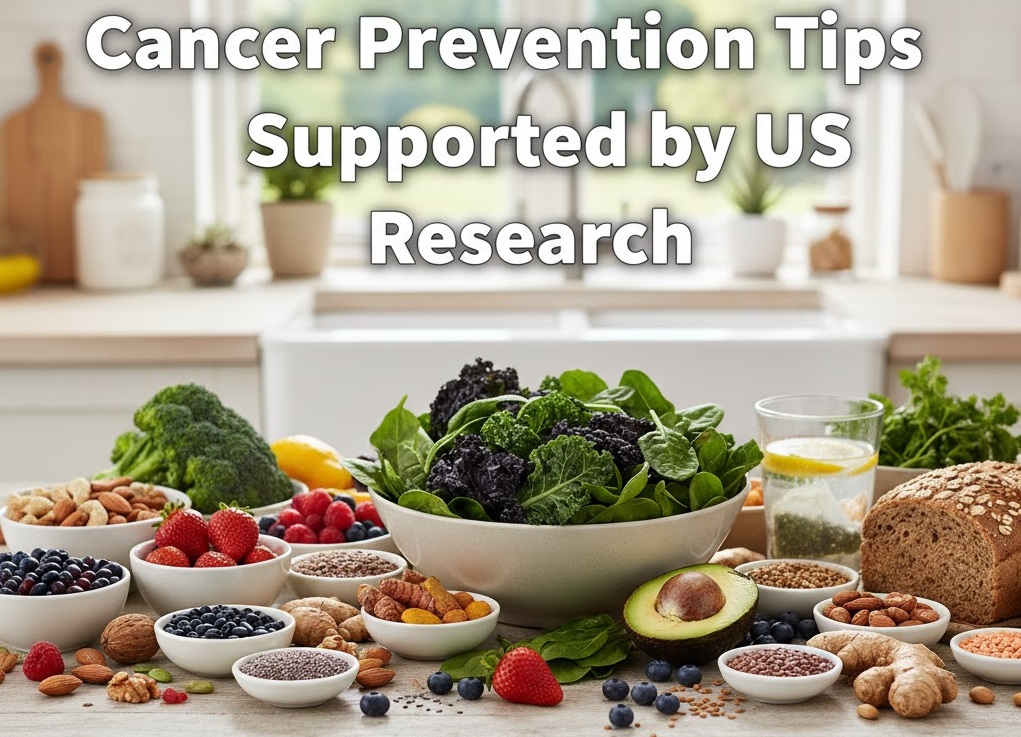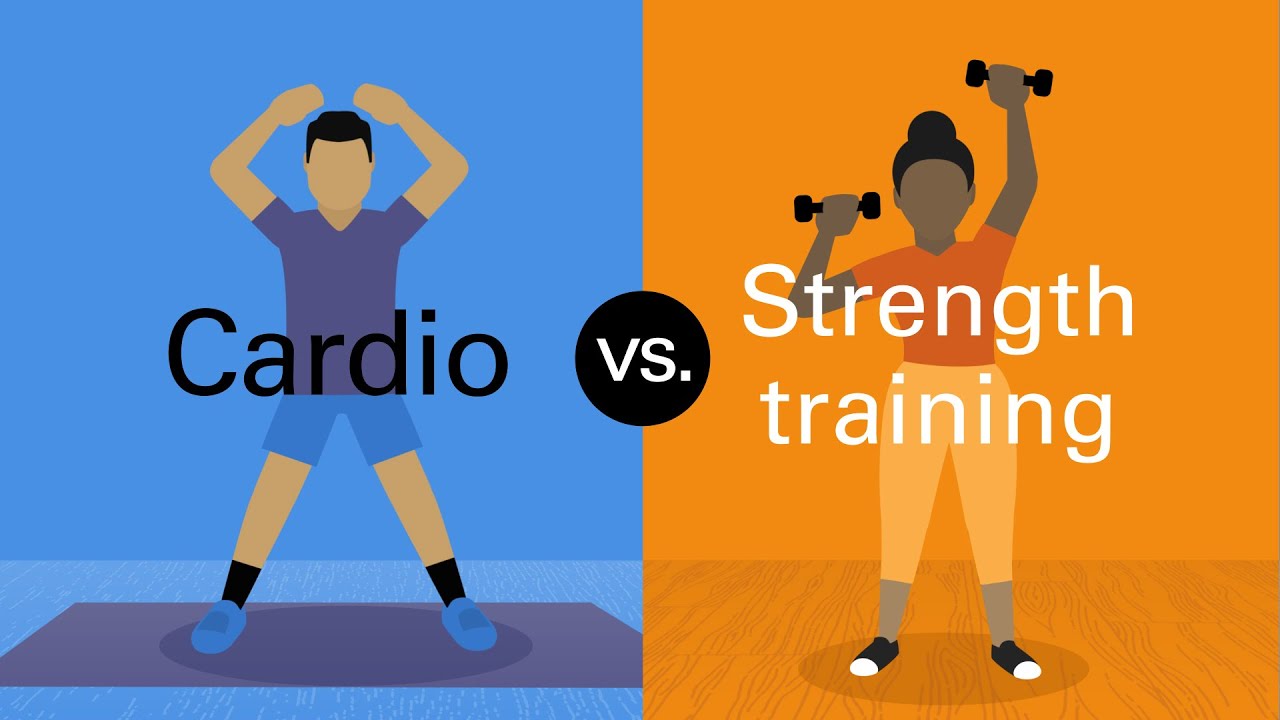Empower yourself with science-backed, practical strategies to reduce your cancer risk. This comprehensive guide blends U.S.-based research, global studies, and real-world prevention advice for everyday life.
Understanding Cancer Risk and Prevention
Cancer is not a single disease but a group of conditions that cause abnormal cell growth, often spreading to other parts of the body. According to the American Cancer Society (ACS), around 40% of cancers in the United States are linked to preventable risk factors such as diet, obesity, tobacco, and physical inactivity.
While no method can guarantee total prevention, decades of research show that healthy lifestyle choices can significantly lower the risk of many major cancers — including breast, colon, lung, and prostate cancers.
Let’s explore the most powerful, science-backed cancer prevention tips — supported by major studies from Harvard University, the National Cancer Institute (NCI), Johns Hopkins University, and others.
1. Eat a Plant-Rich, Whole-Food Diet
🌿 Why diet matters
Nutrition plays a central role in cancer prevention. According to the Harvard T.H. Chan School of Public Health, a diet high in plant-based foods and low in processed meats can reduce the risk of colon, stomach, and breast cancers.
🔬 Research-backed evidence
- A study from Harvard University found that individuals following a Mediterranean diet — rich in vegetables, fruits, whole grains, and olive oil — had a lower incidence of colorectal and breast cancer.
- The National Cancer Institute reports that antioxidants and phytochemicals in plants help neutralize free radicals, preventing DNA damage that leads to cancer.
🥗 Foods that help:
| Food Group | Examples | Research Benefit |
|---|---|---|
| Cruciferous Vegetables | Broccoli, cabbage, kale, cauliflower | Contain sulforaphane — shown to inhibit tumor growth in lab studies (Johns Hopkins University). |
| Fruits (especially berries) | Blueberries, strawberries, citrus fruits | Rich in vitamin C and antioxidants that reduce oxidative stress. |
| Whole Grains | Oats, barley, brown rice | High fiber lowers colon cancer risk by promoting gut health. |
| Legumes | Lentils, beans, chickpeas | Contain resistant starch and bioactive compounds that regulate cell growth. |
| Olive Oil & Nuts | Extra-virgin olive oil, almonds, walnuts | Linked to lower breast and colon cancer rates (PREDIMED study). |
💡 Actionable tip:
Fill half your plate with vegetables and fruits at every meal. Choose colorful produce — each color represents different cancer-fighting nutrients.
2. Maintain a Healthy Weight
⚖️ Why it matters
Obesity is one of the strongest risk factors for many types of cancer, including uterine, breast (postmenopausal), kidney, liver, and colon cancers.
According to the Centers for Disease Control and Prevention (CDC), excess fat tissue produces hormones like estrogen and insulin, which can fuel cancer growth.
🔬 U.S. Research highlights
- The American Institute for Cancer Research (AICR) estimates that maintaining a healthy weight could prevent 20% of all cancers.
- A 2021 study by Harvard Medical School linked sustained weight loss in adulthood with a reduced risk of breast and colon cancer.
💡 Actionable tip:
Adopt a balanced, calorie-conscious eating plan (like the Mediterranean or DASH diet) and stay physically active for at least 150 minutes of moderate activity weekly.
3. Be Physically Active Every Day
🏃 Exercise = Defense
Exercise helps regulate hormone levels, improve immunity, and reduce inflammation — all factors involved in cancer development.
🔬 U.S.-based evidence
- The National Cancer Institute (NCI) found that regular exercise lowers the risk of 13 types of cancers, including colon, breast, bladder, and lung cancers.
- Mayo Clinic studies confirm that people who stay active are up to 25% less likely to develop cancer than those with sedentary lifestyles.
💡 Actionable tip:
Even small movements count. Try brisk walking, cycling, swimming, or gardening. The goal: 150 minutes of moderate or 75 minutes of vigorous activity weekly.
4. Avoid Tobacco in All Forms
🚭 Why quitting matters
Smoking remains the #1 preventable cause of cancer deaths in the U.S., linked to lung, mouth, throat, pancreas, bladder, and kidney cancers.
🔬 Scientific backing
- The U.S. Surgeon General estimates that smoking causes about 30% of all cancer deaths.
- The University of California, San Francisco (UCSF) found that even low levels of exposure to tobacco smoke can cause measurable DNA damage.
💡 Actionable tip:
If you smoke, quitting today reduces your cancer risk almost immediately. Seek professional cessation programs, nicotine replacement therapies, and counseling — they can double your success rate.
5. Limit Alcohol Intake
🍷 The less, the better
Alcohol is a known carcinogen, as classified by the International Agency for Research on Cancer (IARC). It’s linked to cancers of the mouth, throat, esophagus, liver, colon, and breast.
🔬 U.S. findings
- The American Cancer Society advises limiting alcohol to no more than one drink per day for women and two for men.
- A Harvard study found that even moderate drinking can increase breast cancer risk due to higher estrogen levels.
💡 Actionable tip:
Opt for mocktails or sparkling water with fruit instead of alcoholic beverages. Reducing alcohol consumption also supports weight management and better sleep.
6. Protect Your Skin from UV Rays
☀️ Skin cancer awareness
Skin cancer is the most common cancer in the U.S., and melanoma rates are rising, especially among younger adults.
🔬 Backed by research
- The Skin Cancer Foundation and Johns Hopkins Medicine both confirm that 90% of nonmelanoma skin cancers are related to excess UV exposure.
- Studies from the University of Texas Southwestern Medical Center show that sunscreen use significantly reduces melanoma risk.
💡 Actionable tip:
Apply broad-spectrum SPF 30+ sunscreen daily, wear hats and sunglasses, and avoid tanning beds.
7. Get Regular Cancer Screenings
🧬 Early detection saves lives
Screenings catch cancer in its earliest stages — when treatment is most effective.
🔬 U.S. guidelines (from NCI & USPSTF)
| Cancer Type | Recommended Screening | Frequency / Age Group |
|---|---|---|
| Breast Cancer | Mammogram | Every 1–2 years starting at age 40–50 |
| Colon Cancer | Colonoscopy, stool tests | From age 45–75 |
| Cervical Cancer | Pap smear + HPV testing | Every 3–5 years for women aged 21–65 |
| Lung Cancer | Low-dose CT scan | Adults 50–80 with heavy smoking history |
| Prostate Cancer | PSA test (individualized) | Men 50+ (or 45+ with risk factors) |
💡 Actionable tip:
Talk with your doctor about your personal and family health history to determine the right screening schedule for you.
8. Eat Less Processed and Red Meat
🍖 The evidence
Processed meats (bacon, sausage, ham) and high consumption of red meats (beef, pork, lamb) are linked with colorectal and stomach cancers.
🔬 What U.S. research shows
- The World Health Organization (WHO) and Harvard School of Public Health classify processed meats as Group 1 carcinogens (same category as tobacco).
- A long-term NIH-AARP Diet and Health Study found that people who ate the most processed meat had a 20% higher cancer risk compared with those who ate the least.
💡 Actionable tip:
Replace red meat with fish, beans, tofu, or poultry a few times per week.
9. Prioritize Sleep and Stress Management
💤 Why it matters
Chronic stress and poor sleep weaken the immune system, promote inflammation, and can affect hormonal balance — increasing cancer vulnerability.
🔬 Studies show
- University of Rochester researchers discovered that poor sleep disrupts immune function, which may increase cancer risk.
- Yale University studies link high, unmanaged stress levels with accelerated tumor progression in lab models.
💡 Actionable tip:
Aim for 7–8 hours of quality sleep each night. Try meditation, yoga, journaling, or time outdoors to reduce stress hormones naturally.
10. Get Vaccinated Against Cancer-Causing Viruses
💉 Protect against infection-linked cancers
Certain viruses contribute to cancer development — notably HPV (human papillomavirus) and hepatitis B.
🔬 Scientific evidence
- The CDC confirms that HPV vaccination prevents up to 90% of cervical and anal cancers.
- The Johns Hopkins Bloomberg School of Public Health highlights hepatitis B vaccination as key to reducing liver cancer rates worldwide.
💡 Actionable tip:
- HPV vaccine: Recommended for boys and girls ages 9–26.
- Hepatitis B vaccine: For infants and unvaccinated adults at risk.
11. Reduce Exposure to Environmental Toxins
🌍 Everyday chemicals and pollutants
Some chemicals, such as asbestos, radon, and benzene, are linked to cancer risk.
🔬 U.S.-based research
- The Environmental Protection Agency (EPA) identifies radon as the second leading cause of lung cancer after smoking.
- Studies from the University of California, Berkeley found that prolonged exposure to air pollution increases the risk of lung and bladder cancers.
💡 Actionable tip:
Test your home for radon, use natural cleaning products, and ensure good ventilation. Choose organic produce when possible to reduce pesticide exposure.
12. Strengthen Your Immune System Naturally
🧠 The body’s defense mechanism
Your immune system helps identify and destroy abnormal cells before they become cancerous.
🔬 What the science says
Research from Stanford University shows that immune surveillance — the process of immune cells recognizing mutated cells — is crucial in preventing tumor formation.
💡 Actionable tip:
Support your immune health with nutrient-rich foods, regular exercise, adequate sleep, and limited alcohol. Consider probiotics or fermented foods to support gut health — a major component of immune function.
Bonus Section: Cancer Prevention by the Numbers
| Lifestyle Change | Potential Cancer Risk Reduction | Supported by |
|---|---|---|
| Quitting Smoking | Up to 50% lower risk of 13 cancers | U.S. Surgeon General, CDC |
| Maintaining Healthy Weight | ~20% of cancers preventable | AICR, Harvard |
| Regular Exercise | Up to 25% lower overall cancer risk | NCI, Mayo Clinic |
| Plant-Based Diet | 10–30% reduction in digestive cancers | Harvard, WHO |
| Limiting Alcohol | 5–20% reduction in breast & liver cancer | American Cancer Society |
| Sunscreen Use | 90% lower nonmelanoma skin cancer risk | Johns Hopkins Medicine |
FAQs — Common Questions About Cancer Prevention
Q: Can cancer be completely prevented?
A: Not entirely, but up to 40% of cancer cases are preventable through lifestyle and environmental changes, according to the American Cancer Society.
Q: Does sugar cause cancer?
A: No direct link has been proven. However, high sugar intake can lead to obesity and inflammation — both risk factors for cancer.
Q: Are organic foods better for cancer prevention?
A: Organic foods may reduce exposure to pesticides, but the overall benefit depends on eating more fruits, vegetables, and whole foods, organic or not.
Q: Is fasting helpful for cancer prevention?
A: Early research (including studies from the University of Southern California) suggests intermittent fasting may reduce inflammation and improve metabolic health, but more data are needed.
Q: How much exercise is needed to lower cancer risk?
A: Aim for at least 150 minutes of moderate-intensity or 75 minutes of vigorous activity each week, as recommended by the National Cancer Institute.




